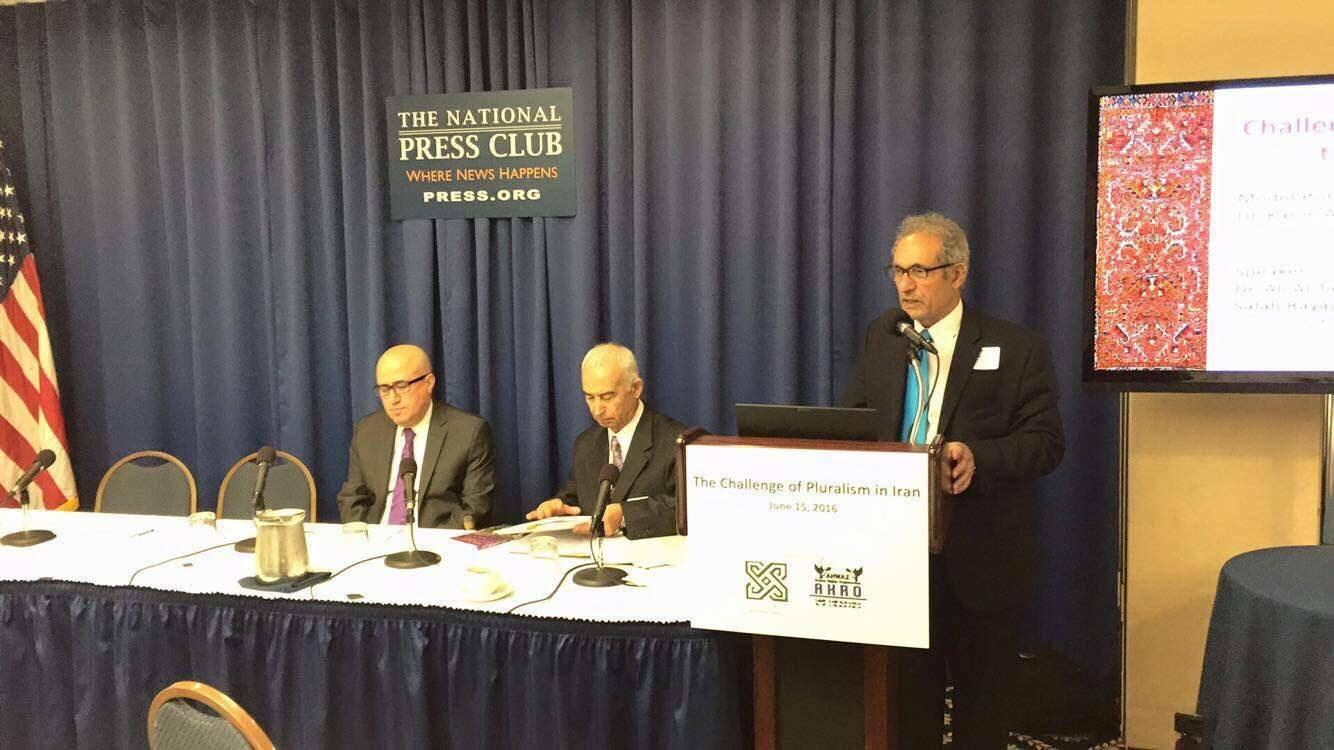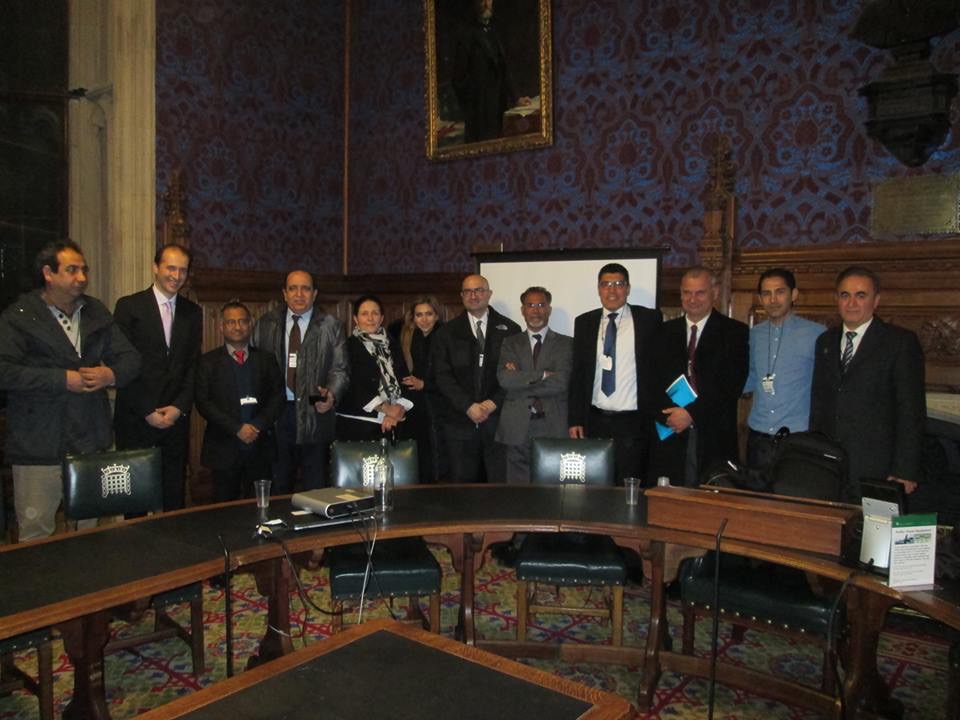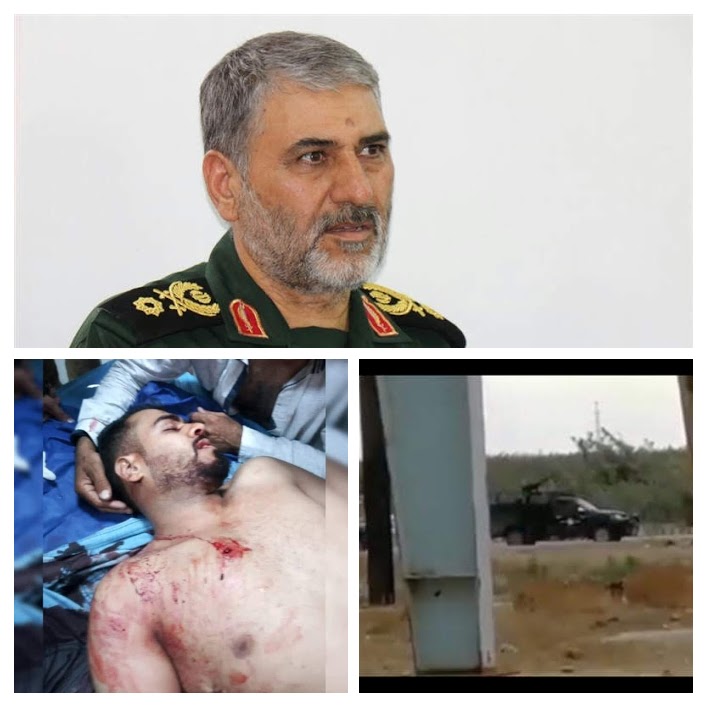The challenges of Biden in dealing with Iran and the solution!
Karim AbdianWith the nomination of Anthony Blinken and John Kerry by president-elect Joe Biden’s as a part of his national security team one may think there should jubilations and a sense of triumph and relief among the leaders of the Islamic Republic in Tehran. After all, Mr. Blinken was the head of the first secret team to be dispatched to Muscat and ultimately played a pivotal role in the Iran nuclear deal or, JCPSA, that John Kerry negotiated and effected.
This is the outcome that Tehran expected, especially after spending a large amount of money during this election to support the intense Iranian lobbying efforts in the US on behalf of Joe Biden and Kamala Harris.
In addition to established Iranian lobby groups such as National Iranian American Council (NIAC), and NIAC-Action, several newly minted Iranian lobby groups have emerged this year. Cheer leading these new crowds were the familiar groups in Washington such as former president Barak Obama, Ben Rodes, Terita Parsi, Jason Rezaian, Bernie Sanders, Elizabeth Warren and others.
Post-election results show that Iran’s lobbying efforts was focused on persuading Democratic party to get the attention and voting support of a variety of predominantly left-of-center philanthropic foundations, the Black Lives Matter, Muslim and Arab grassroot civil rights groups promising to stop the so-called Trump war against Iran. Also, to get the flawed Iran nuclear agreement, or JCPA and trade relations restored and have the sanctions against Iran removed.
In a not uncertain term, both Elliot Abram, US Special Representative for Iran as well as Secretary Pompeo stated that regardless of the result of the election, pressure’ policy against Iran will continue and US sanctions against Iran with remain as a baseline US foreign policy.
I believe Mr. Abrams assertions are correct. Mr. Abram is an experienced politician and I found him the most familiar with Iran with very good ideas to tackle Iran issues. I met with Mr. Abrams in the White house during the second term of George W. Bush when Mr. Abrams directed the Gulf policy in the National Security Council.
In fact, this is what Joe Biden alluded to in his Sept 13 opinion article for CNN : “There's a smarter way to be tough on Iran”
There seem to be some sort of a non-partisan agreement that Biden will get the nuclear agreement, or JCPA reinstated, secure the release of all Iranian-American held prisoners in Tehran. There will be an added component the elimination of Iran’s missile development profile and withdrawal of forces and advisors from Iraq, Syria and Yemen. Also, desirably, coerce Iran to take responsivity for two Americans who were killed in a rocket attack on a military base in Taji, Iraq on March of this year. US military officials told CNN that based on weapons and tactics used its the work of Iran Revolutionary Guard Corp. And finally force Iran to admit the missile and drone attack on Saudi Arabia’s oil facilities on September. 14, 2019. All this can be found in Biden’s Sept 13 opinion article for CNN “There's a smarter way to be tough on Iran”
One can say that this in fact is nothing but the condensed version of Pompeo 12-point program.
Unlike Obama, Biden can’t not be overly soft on Iran: anti-Iran policy is all over the place among Americans: The latest Despite Gallup poll of showing an astonishing 88 percent Americans have an unfavorable view of the country. Moreover, a 2019 poll also reflected 93 percent of Americans designated the Iranian regime’s development of nuclear weapons as a “critical” or “important” threat, and that Iran is a major sponsor of terror. And just this week UN Human rights commission and the State Department designated last year massacre-of-Ahwazi Arab city of Mashhour as where thousands were shot to death is a gross-violations-of-human-right that was overseen by the leadership and executed by RGC.
On the other hand, the euphoria in Tehran, if there is one, in not going to last long.
The immediate concern of the Mullahs is the explosive situations in the country where Iran US lobby is useless.
By any and all standards, the situations inside are untenable.
There is the dire economic condition, rapid currency fluctuations, severe budget deficit, ever increasing infighting inside the regime, revelation of theft of billions of dollars by the religious and nonreligious elites, rapid expansion and inability of the regime in developing a plan to control CODID-19 resulting in wider death, and finally abject
According to all Iranian analysts, the fall of the regime if not immanent its nearing soon. When it does fall unless a road map for an orderly and smooth transition to a secular demodectic, plural and a federal system of governance under which devolution of power is shifted from the aristocratic Persian Shia elite to the peoples and all national constituencies, a chaos and indeed balkanization and civil war may follow. Balkanization of Iran would be the worst nightmare for the region and the world. It is expected that at least five million refugees would flee the country in the initial stage.
Like most countries in the region, Iran is a multiethnic or multinational country. Indeed, Iran is the most diverse country in the region. After the fall of Qajar dynasty, British imperialist, with aid of Persian Shia aristocracy engaged in a “nation-building” attempt in the 20the century to create a monolithic “Iranian nation” by suppressing ethnic diversity and imposing a Persian ethnic identity on non-Persian nationalities such as Iranian Ahwazi-Arabs, Kurds, Turks, Baloch, Turkmen, Lors and others. Bu it was a failure. The official notion of nationhood in the country has been constantly challenged by non-Persian nationalities.
These politically awakened oppressed nationalities- comprising at least half to two-third of the population - who were marginalized and kept out of power Tehran for so long by the Persian Pahlavi monarchy the Persian Shia mullahs, will be the first ones to challenge the status que after the fall of the regime.
In absence of any law and order or neutral middle parties, there will be civil war between the adjutant nationalities who are made to feud on land, water, religion and sects and other historical animosities.
Failure of the international community and the middle eastern major player to help the Iranian opposition in material and logistical support and assistance to change the regime orderly into a peaceful plural governance, a de-centralized multinational-federalist state, another Syria is in the horizon. Non-dominant and non-Persian nationalities have been struggling for an equal right and equal citizenship for a century, or as they call it the right of self-determination within the borders of Iran. Allowing power-sharing between central (federal) governments and regions, without breaking up the state.
A road map such as this has already been formulated and agreed upon by two dozen regional political parties and organizations. They will be found willing and well capable of negotiations. But their exclusions will be tenement to dissolution of Iran.
It needs to be noted that despite some American and Israeli quarters supported by Persian ultranationalists that suggest the restoration of Monarchy or entrusting some Persian-only organization abroad would certainty face a rejection by at least two-third of Iranians.
The choice is very clear: working with regional Kurdish, Arab, Baloch, Azeri-Turks, Turkmen, Lor and other minorities political parties which are encompassing the Persian Center, to safely secure the oil installations and infrastructures as well as other national resources, and made them to take responsibility to secure the integrity of the provinces and the safety of all citizens, no one group or power can ensure stability in the country.
Advancing pluralism in Iran and a multi-ethnic or multi-national federalism, is well defined by the UN, can readily be implemented and with the appropriate support and advocacy from the UN and the international community is the only solution ion Iran – all else id guaranteed to fail.
- Details
- Articles










